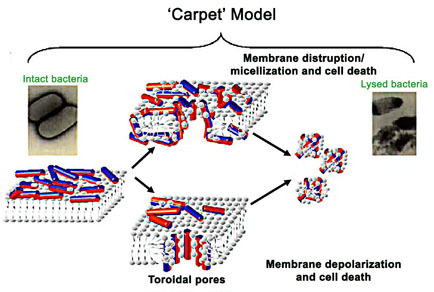Abstract
Antimicrobial peptides (AMPs) are important components of the host innate immune response against microbial invasion. They are usually characterized by their small-size, heat-stability and broad range of antimicrobial activity. This review covers research advances on marine mollusc AMPs, specifically those isolated from mussels, scallops, oysters, venerid clams and abalone, which mainly include MGD, mytilin, myticin, mytimycin, big defensin, and RPD-1. Their structural characteristics, antibacterial activity, and expression pattern as well as peptide distribution and their release following microbial challenge are also discussed. In addition, the prospect of the application of AMPs as food additives or their use in immunostimulation to prevent diseases of aquatic animals, as well as their potential hazards, are also discussed.

